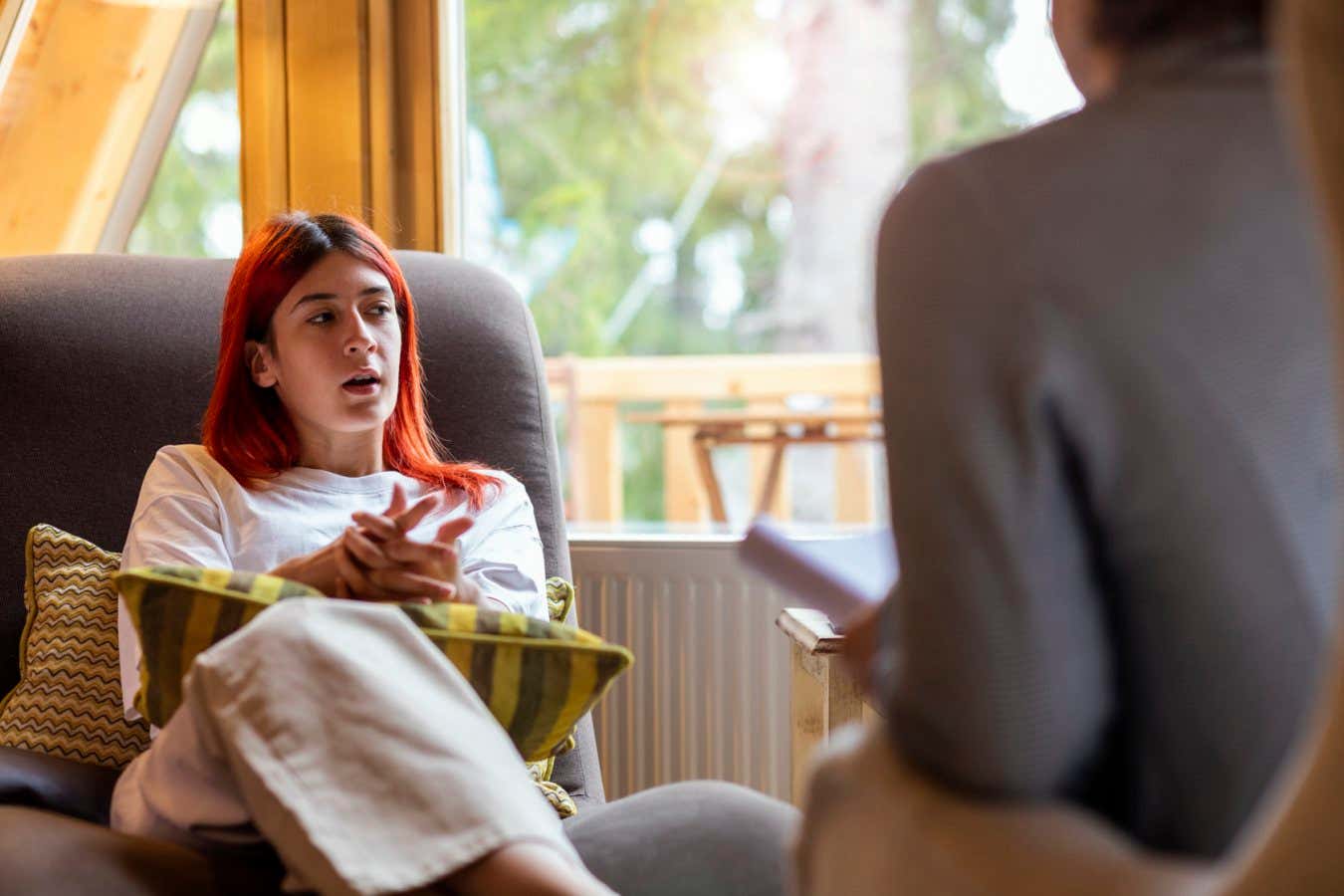
Irritable bowel syndrome could be relieved through techniques taught in types of therapy
Sladic/Getty Images
Therapies that alter the behaviour of people with irritable bowel syndrome (IBS) may be more effective than the existing go-to treatments. If offered digitally, these could also help speed up their relief.
IBS commonly results in bloating, diarrhoea, constipation and abdominal pain. While its causes are unclear, disordered gut-brain signalling is thought to play a major role. Gut infections or certain foods may trigger the gastrointestinal tract to send alarm signals to the brain, while psychological stress can send them the other way, hence why people with IBS are encouraged to find ways to relax.
Dietary advice and drugs like laxatives can help, but for some, symptoms persist, leading researchers to explore novel approaches such as faecal transplants. As somewhat of a last resort, doctors often turn to behavioural therapies, which a 2020 review suggested may be more effective than routine care.
These can include cognitive behavioural therapy (CBT), which helps people change how they think and act to manage and accept their symptoms, and gut-directed hypnotherapy, where people are put into a trance-like state before receiving suggestions that their symptoms are improving.
With more studies published since then, Alexander Ford at the University of Leeds in the UK and his colleagues – some of whom were involved in the earlier review – have now sifted through 67 randomised-controlled trials, involving more than 7000 participants. These compared behavioural therapies that lasted between four and 12 weeks with various control groups who received standard interventions like dietary advice or laxatives, or who were on a waiting list for therapy.
“It’s the largest review of behavioural IBS treatments in terms of number of studies and participants [to my knowledge],” says Perjohan Lindfors at the Karolinska Institute in Sweden.
The researchers found that CBT and gut-directed hypnotherapy – delivered either in-person or via an app or the internet – were more effective than standard treatments, based on the participants comparing their symptoms before and after.
Rather than being offered only after standard interventions haven’t sufficiently helped, and then usually solely in-person, the findings suggest that behavioural therapies should be rolled out much earlier, with digital approaches helping to deliver at speed, says Ford. “They could give you a way of scaling up behavioural therapy to be delivered on a mass scale,” he says. But more trials that directly compare digital therapies to standard ones are needed before guidelines can be updated, says Ford, who thinks this could take another five years.
In addition, most of the participants in the studies couldn’t be blinded to which group they were in, so some of the benefits may be down to the placebo effect, says Lindfors. Trials where participants receive either a complete form of a therapy or only parts of it could help to assess the scale of this effect, if they were all under the impression they were getting the actual behavioural treatment, says Lindfors.
Topics:
Source link : https://www.newscientist.com/article/2499579-therapy-may-be-the-most-effective-way-to-ease-irritable-bowel-syndrome/?utm_campaign=RSS%7CNSNS&utm_source=NSNS&utm_medium=RSS&utm_content=home
Author :
Publish date : 2025-10-09 23:30:00
Copyright for syndicated content belongs to the linked Source.